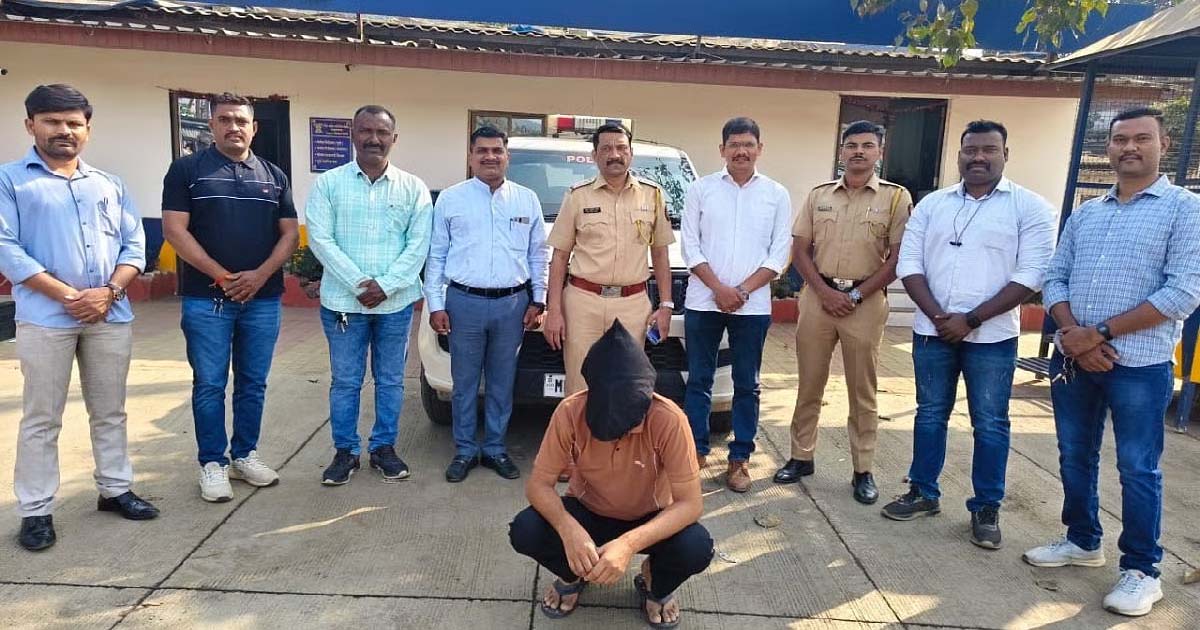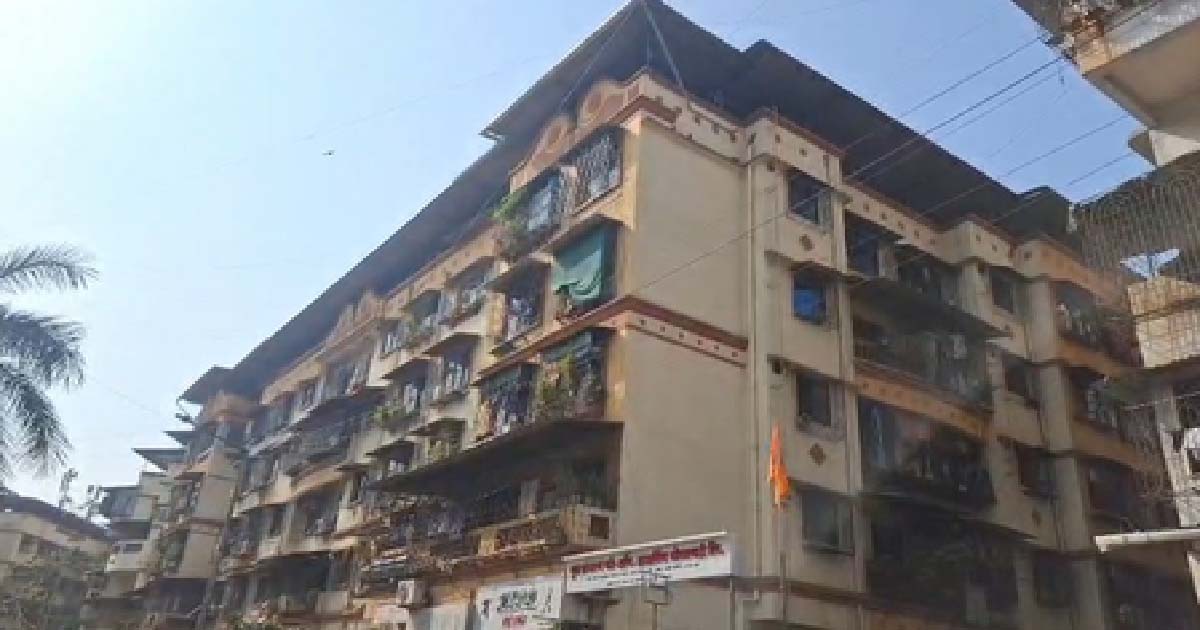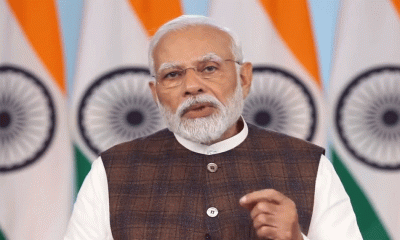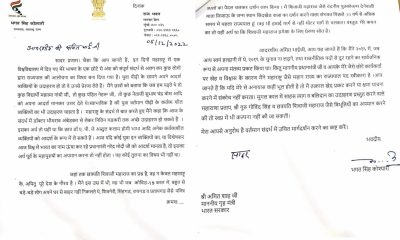National News
Begin the change from Gujarat, Telangana leaders dare Amit Shah

Telangana is considered as mini-India because of its true cosmopolitan nature and the language sentiments here not being as strong as in Tamil Nadu or Karnataka, but Union Home Ministers Amit Shahs recent statement that Hindi should be the alternative to English for communication among Indians has drawn the ire of all.
Political parties and academicians see this as an attempt to impose a particular language on India though unity in diversity is the country’s strength. They warn that this regional chauvinism will boomerang.
Some political leaders have slammed the BJP for what they call its double-standards on the language issue, and dared the party to start imposing Hindi from Gujarat.
The ruling Telangana Rashtra Samithi (TRS) has come down heavily on the BJP for doing politics over language, saying the saffron party wants to decide not only what one should eat and wear, but also the language one should communicate in.
“Why don’t we let people of our great nation decide what to eat, what to wear, who to pray to and what language to speak,” said TRS working President K.T. Rama Rao, who warned that language chauvinism or hegemony will boomerang.
He also believes that rejecting English will be a great disservice to the youngsters of this nation who have global aspirations.
“Already our students in different states are missing the English language to be competent. While it is the wish and will of citizens to practice what they want, imposition is not right. After Amit Shah spoke, we have seen on national channels many BJP MPs toeing the line of the �one nation one language’ theory. That’s more dangerous than the agenda Amit Shah has brought. This questions the identity of states and different regional languages,” TRS leader Manne Krishank told IANS.
He also believes that the BJP is adopting dual standards on the language issue.
“In February, the Gujarat government took a decision that all sign boards should be in Gujarati. The government of India ruled by the BJP is pushing states that they should practice Hindi, whereas Gujarat is talking about Gujarati. Instead of preaching states down south, they should start from Gujarat if they really believe in practicing what the preach. Let them start from Gujarat,” said Krishank, who is the convenor of the social media wing of the TRS and also chairman of the Telangana State Mineral Development Corporation (TSMD).
“It’s an absolutely uncalled for remark by Amit Shah against the very spirit of the Indian Constitution. Not just the federal concept of the Constitution, but the very spirit of unity in diversity. Enforcing a particular language upon the entire country, particularly in southern India, is an attempt of expansionist imperialism.
“I mean, they want to somehow take control of the region and therefore they are using language now. But I think India is mature enough to understand this dubious politics of region, religion and now again language. This is essentially to establish their dominance,” said senior Congress leader Dasoju Sravan Kumar.
He believes there is no language problem in almost the entire south India.
“You don’t see language problems, particularly in the context of Telangana, where there are people who speak Urdu and Hindi. There are people who come from all over India — Gujaratis, Parsis, Rajasthanis, Tamilians, Malayalis and others.
Telangana is like a mini-India where people come from various religions, regions and languages. Per se, this kind of Hindi enforcement by the government of India will only boomerang and Telangana will strongly extend the rebuttal,” said Sravan Kumar, who is a national spokesman of the Congress.
“Language is part of the DNA. How can my DNA be changed just because Amit Shah enforces something? Everybody speaks their mother tongue based on culture, history and traditions. And you suddenly come and say you should speak in Hindi. First you change Gujaratis, and then come to us,” added the Congress leader.
Academician K. Nageshwar has also found fault with the Union minister’s statement.
“Diversity of language, culture, tradition, belief, faith, customs and an underlying unity is India’s true soul. Don’t convert India into a hegemonic regimented society,” said Nageshwar.
He reminded Amit Shah that there is no single language of India. There are several languages of India and linguistic diversity demands equal treatment of all.
The former member of legislative council observed that promoting a language that advantages one set of Indians over others is a recipe for division over diversity.
He wondered why can’t Amit Shah talk of making any south Indian language mandatory in Hindi-speaking states to forge national unity.
“It’s my choice. Let me speak what I want to speak. Why are you forcing me to speak Hindi? It makes no sense. If somebody wants to learn, they are anyway learning. These days there is so much awareness.
“Tamilians are also learning Hindi if they like and if they think that it helps them in business. Language is not a national identity. Language is a medium of communication,” said Sravan Kumar, who also served as assistant professor in human resource management at the Institute of Public Enterprise.
“If you go to Gujarat, how many people speak Hindi there? They speak Gujarati. How many people in Rajasthan speak Hindi? They speak Rajasthani. In Maharashtra they speak Marathi. Language enforcement is essentially some kind of expansionist thinking, imperialist thinking. This is our language and all should practice it. This is a sort of tyrannical and dictatorial tendency,” he said.
Krishank is of the view that the talk of Hindi as alternative language to English is BJP’s style of politics.
“First food, then dress and now language. We have seen it in Karnataka. Hijab, Hilal and now Hindi. They are doing triple H politics,” he remarked.
The TRS leader also reminded Amit Shah that Hindi is spoken in different states differently.
“Someone from Bihar speaks one Hindi, someone from Uttar Pradesh speaks another Hindi. We in Hyderabad speak Deccani which is a different dialect from Hindi. If their �nahin’ is �na’ for someone, it is �nakko’ for me. It’s �Bhao’ in Maharashtra and it’s �Bhai’ in another place.
“More than necessity or anything, comfort level has to be seen. For instance, when Nirmala Sitharaman speaks in Parliament in English, it is understood. We appreciate that she is a good orator, but when she speaks Hindi, she makes so many mistakes. It looks as if she is speaking some other language. This is how it is.
“If tomorrow a Hyderabadi goes and speaks, it will be totally different. In Bollywood movies, Hyderabadi Hindi is shown for comedians. What they are trying to do is mere politics. Imposition of politics through language,” Krishank said.
He believes that it also matters with whom one is communicating.
“If we are visiting another state, whom we are communicating with? If I am communicating with an auto rickshaw driver it is different, but what if I am going for a meeting of corporate heads. Are they going to make it mandatory for every corporate industry to work in Hindi? If I am going to an MNC in Mumbai to work, will I go and give an interview to the MD in Hindi,” he asked.
Crime
Palghar Crime: Pelhar Police Seize Banned Gutkha Worth ₹6.39 Lakh, Shopkeeper Arrested In Nalasopara

Palghar, Maharashtra, Dec 27: In a significant crackdown on the sale of banned tobacco products, the Pelhar Police arrested a shopkeeper for illegally stocking and selling gutkha, seizing contraband worth ₹6.39 lakh.
According to police, the action was carried out on December 25, 2025, during a routine patrol by Assistant Police Inspector Ramesh Waghchaure along with his team.
Acting on specific and reliable information, the police raided Sana General Stores located at Khan Chowk, Nalasopara Station Road, Nalasopara East, Vasai.
During the raid, the shop owner was found in possession of Maharashtra government-banned tobacco products (gutkha), allegedly kept for sale. The accused has been identified as Javed Ahmed Zaheer Ahmed Ansari (38), a resident of Nalasopara East.
Upon searching the shop premises, police recovered banned gutkha products valued at ₹6,39,493. Following the seizure, Pelhar Police registered a case against the accused, invoking Section 123 of the Bharatiya Nyaya Sanhita along with relevant provisions of the Food Safety and Standards Act, 2006 (Sections 26(2)(i), 26(3), and 26(4)).
Further investigation in the case is being carried out by Waghchaure. Police officials stated that such drives against banned substances will continue to protect public health and ensure strict enforcement of the law.
National News
BMC Elections 2026 | ‘Fight Election, Win Majority’: Sanjay Raut’s Sharp Response To Waris Pathan’s, ‘Why Can’t Khan, Pathan, Shaikh, Qureshi, Syed Become Mumbai Mayor?’ Remark

Mumbai: Shiv Sena UBT MP Sanjay Raut on Saturday, December 27, has strongly replied to to remarks made by AIMIM’s national spokesperson Waris Pathan, over who can become the mayor of Mumbai. Pathan had questioned, “Why can’t a Khan, Pathan, Sheikh, Qureshi, Syed become the Mumbai mayor?”
Responding to Pathan’s remarks, Raut said that elections should be fought democratically and decided by numbers. “Fight the election, win a majority and bring in 110 seats,” the Sena UBT MP said. He further added, “We have always maintained that Mumbai’s mayor should be a Marathi-speaking person”, adding that if Waris considers himself a Mumbaikar, he should demonstrate public support through the electoral process.
While speaking to news agency Media, Waris Pathan spoke on the upcoming Municipal Corporation Elections, where he questioned, saying, “Why can’t a Khan, Pathan, Sheikh, Qureshi, Syed become the mayor?”
He claimed that one day a Hijab-wearing woman will also become a mayor. He added, “Muslims have been leaders in the nation already… They (Maharashtra government) have no response to the lack of development and farmers’ suicide… They simply want to spread polarisation…”
NCP leader Zeeshan Siddique said that anyone can be sent to the position of Mayor, while their caste or religion should not matter. He expressed belief that the city needs a person who believes in getting things done.
Further adding, he said, “The mayoral chair should go to someone who has faith in work… If you look around Mumbai, the condition of the city’s roads and infrastructure is poor. Even though BMC receives funds worth thousands of crores, the work does not get done.”
The elections for 227 seats of BMC will be held on January 15, while the counting of votes will be held on January 16. The last polls for the 227 seats were held in February 2017. The BMC elections become crucial as the Mahayuti secured a landslide majority in the 288 municipal councils and nagar panchayats, winning 207 president posts in the local bodies. The Opposition Maha Vikas Aghadi could come up with a collective tally of 44.
In the BMC polls, the total number of registered voters stands at 1,03,44,315 across all wards, of which 55,16,707 are male voters, 48,26,509 are female voters, while 1,077 voters are listed under the ‘other’ category.
Crime
Mother strangles 6-year-old to death in Navi Mumbai for not speaking Marathi

Navi Mumbai, Dec 27: In a shocking and disturbing incident from Navi Mumbai, a woman allegedly murdered her six-year-old daughter because the child could not speak Marathi, sending shockwaves across the city.
The police have arrested the mother in connection with the case after attempts were made to pass off the child’s death as a heart attack.
The incident came to light after the police grew suspicious of the circumstances surrounding the child’s death and ordered a post-mortem examination, which revealed that the girl had died due to asphyxiation.
Following intensive questioning, the truth behind the incident was uncovered.
The heart-wrenching crime was reported from the Kalamboli suburb of Navi Mumbai. In Gurusankalp Housing Society in Sector-1, Kalamboli, the 30-year-old woman allegedly strangled her own six-year-old daughter to death.
The Kalamboli police have arrested the woman and initiated further investigation into the matter.
According to information provided by the police, the family consisted of an IT engineer husband and his wife, who holds a B.Sc. degree. The couple got married in 2017 and welcomed their daughter in 2019.
However, from a very young age, the child reportedly had difficulty speaking and mostly communicated in Hindi instead of Marathi.
This reportedly became a recurring source of anger for the mother. During the investigation, it emerged that she often expressed resentment about the child’s speech, repeatedly telling her husband, “I don’t want such a child; she doesn’t speak properly.”
The husband, police said, had tried to reason with her on several occasions.
On the night of December 23, the woman allegedly decided to kill the child. Coincidentally, the grandmother had visited the house that day, but could not meet the girl.
Later, when the husband returned home and found the child unresponsive, the family rushed her to the hospital.
At the hospital, an initial claim was made that the child had suffered a heart attack. However, Senior Police Inspector Rajendra Kote of Kalamboli Police Station found the circumstances surrounding the death suspicious and ordered a post-mortem examination.
The preliminary medical report indicated obstruction of the airway, pointing towards asphyxiation.
Following this revelation, the police subjected the parents to sustained questioning. After nearly six hours of interrogation, the mother allegedly confessed to strangling her daughter.
She has since been arrested in connection with the crime.
It has also come to light during the investigation that the woman was undergoing treatment with a psychiatrist.
The police are continuing their probe to ascertain all aspects related to the case and the mental condition of the accused.
-

 Crime3 years ago
Crime3 years agoClass 10 student jumps to death in Jaipur
-

 Maharashtra1 year ago
Maharashtra1 year agoMumbai Local Train Update: Central Railway’s New Timetable Comes Into Effect; Check Full List Of Revised Timings & Stations
-

 Maharashtra1 year ago
Maharashtra1 year agoMumbai To Go Toll-Free Tonight! Maharashtra Govt Announces Complete Toll Waiver For Light Motor Vehicles At All 5 Entry Points Of City
-

 Maharashtra1 year ago
Maharashtra1 year agoFalse photo of Imtiaz Jaleel’s rally, exposing the fooling conspiracy
-

 National News1 year ago
National News1 year agoMinistry of Railways rolls out Special Drive 4.0 with focus on digitisation, cleanliness, inclusiveness and grievance redressal
-

 Maharashtra1 year ago
Maharashtra1 year agoMaharashtra Elections 2024: Mumbai Metro & BEST Services Extended Till Midnight On Voting Day
-

 National News1 year ago
National News1 year agoJ&K: 4 Jawans Killed, 28 Injured After Bus Carrying BSF Personnel For Poll Duty Falls Into Gorge In Budgam; Terrifying Visuals Surface
-

 Crime1 year ago
Crime1 year agoBaba Siddique Murder: Mumbai Police Unable To Get Lawrence Bishnoi Custody Due To Home Ministry Order, Says Report


















